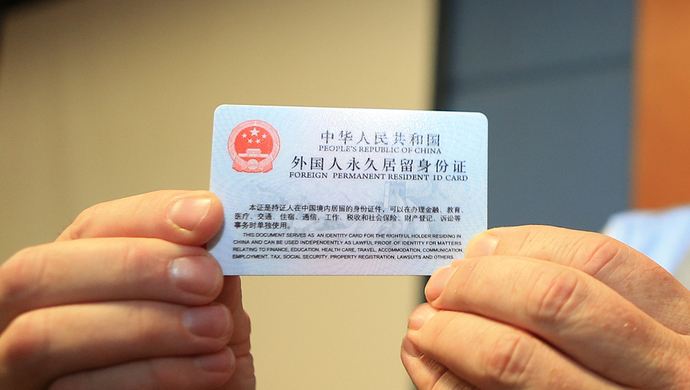
Kickstarting a (Non-Teaching) Career in China
By: Ted Salonek

Teaching is a wonderful, rewarding profession, and I truly believe that spending a little time in the classroom would benefit almost anyone. But the truth of the matter is not everyone is cut out to be a teacher. This article isn’t for the career teachers who have found their passion and can’t imagine doing anything else. This is for the people who are looking to transition out of the classroom. Some people become teachers in China to travel the world with a reliable income, some decide to teach because of trouble finding work back home, or some may just be genuinely interested in experiencing Chinese culture.
In my experience, expats (particularly foreign teachers) end up spending a roughly three-year stint in China before they head home or ship off to another country to continue teaching. Some teachers, however, find a new career outside of education. I had the chance to speak with a colleague of mine, Luke, who also started his China journey as a teacher. He shared his experience and professional progression with me, moving from the classroom to working as the Operations and Advertising Manager at Foreign HR:
CJD: Describe your time as a teacher. What age were you teaching? Which subject? Which city?
Luke: I taught in France for a year as an English language assistant at a university and in Shenzhen from 2009-2011 in a Chinese high school with mixed Canada/Chinese curriculum. In Shenzhen I primarily taught high school IT classes along with some social studies. Students were high school age, so 16 to 20 for some of the oldest students. My plan was never to be a career teacher. I don’t have an education degree, but over the years have amassed quite a bit of teaching experience. From high school onward I tutored privately; I worked with a company for 2.5 years, the Princeton Review, teaching prep courses for standardized tests like the MCAT and LSAT; as an undergrad I worked at my university’s writing center for two years, helping fellow students with their academic writing.
CJD: What made you want to stop teaching and pursue another career?
Luke: As I mentioned, despite
having done it a lot, and enjoying it (most of the time), teaching was never my
passion nor my career goal.
CJD: How did you get into your current line of work/how did you end up switching careers?
Luke: My way out, so to speak, was directly due to learning Mandarin. While in Shenzhen, I started taking Chinese lessons with a teacher, one-on-one once a week. In my spare time, I went through every learning resource I could find: Pimsleur audio lessons, Rosetta Stone computer-based lessons, textbooks, I even re-named the characters in a video game I was playing the Mandarin numbers from one to eight (there were only eight player-controlled characters.)
I became the go-to person in my expat friend group when they needed help, like talking to the Chinese tailor about their custom wedding dresses, or helping my friends shop for white latex paint – all great opportunities to practice and learn some new vocabulary!
The Mandarin I learned in that two years in Shenzhen, though not fluent, was enough to get me a job back home in Canada at my alma matter in the international office as an international student coordinator. My university had various projects and agreements with Chinese universities, so they needed someone with some Mandarin abilities.
After three years working at the university, my contract was up and I decided to return to China and really step up my Mandarin game, so I went to university for two years doing full-time Chinese lessons in Dalian in the north east of China.
After graduating I went to a few job fairs and met with Eric Liu of Foreign HR. I left my resume with him and we began chatting over email and WeChat about his plans for the company and his need for someone with my skills and experience. It was a protracted period of getting to know the company, visiting their offices, discussing what the new project would look like, before I decided to take the position.
I’ll add that besides my resume, I also prepared a portfolio that showed off my skills and experience in a more concrete way. I included all kinds of different things like samples from proposals I’d written and reports I’d prepared, poster, logos, charts and graphs that I’d designed over the years, etc. I think this portfolio was instrumental in getting Foreign HR’s attention.
CJD: What advice do you have for current teachers who are exploring job options outside of education?
Luke: Well, obviously I would suggest learning as much of the language you can. I’ve known so many expats over the years in China who speak little to no Mandarin, never mind being able to read Chinese characters! And that’s fine too. It works for them. You can always get by with some help from a friend. But you’ll definitely have more options the better your language skills are.
Another suggestion is a lateral transition out of teaching. Start with jobs in the education field, teaching adjacent if you will. Like curriculum developer, or marketing with a school or educational company, administrative roles like in recruitment or admissions, tech roles like systems admin (schools often use specialized software for marking/grade reports, attendance, registration, etc. and they hire people experienced with those systems). I’ve known a few teachers over the years who have followed this route. They started as full-time teachers and still work with schools, but they don’t spend any time in the classroom.
I think the key is identifying what you like doing and where your non-teaching skillset lies, then continuously developing those skills while you’re teaching in preparation for a change.
After this conversation with Luke, we put together a list of actions you can take to help move away from teaching and into another field that interests you and fits your qualifications. We believe that if you diligently work your way through this basic framework, you’ll be able to find a career in China outside of teaching that you’ll find both interesting and fulfilling.
Find an Agency
I understand that some may have an aversion to agencies, but if you’re an expat who lacks Mandarin language proficiency, it may be your best bet. Many established staffing agencies that specialize in placing foreign talent will have availabilities outside of education. Many of these positions may be part-time or internships. It’s a great idea to take one of these positions and put in some time with these companies. There’s an excellent possibility that if you work part-time or as an intern for them and are a dependable, reliable employee, they’ll offer you a full time job.
While I was working at a public school in Beijing, I was looking for part-time work. Eventually, I found a position through an agency working part-time as a voice actor. My weekend afternoons, for several months, were spent in a recording studio dubbing Chinese kung-fu movies and TV series to be sold to an English speaking market (as you could imagine, I was making a lot of “HYYAH!” and “HUEUGH” noises. It was fun!). I recruited several of my American and Canadian friends to do some voice dubbing as well. While I moved on to work for an online education company which moved me to Hawaii to open an office for them in Honolulu, my friend (whom I recruited to do voice overs) ended up with a full time position as a voice actor and worked there full-time for several years!
Networking Events
As a teacher in China, you can lay back in your office chair and casually pick through excellent job offers. If you’re looking non-teaching jobs, you’ll need to be a little more proactive in your search. Many larger cities in China have networking events for foreign and Chinese professionals. These meet-and-greets are often full of companies, agencies, and organizations that are looking for people who have experience and backgrounds that are difficult to find in their local job market.
I know it may seem like a lot of work, but if you want to find a position outside of the teaching profession, you may need to clean up, put on that suit, print out some business cards or resumes, and attend one of these events. I have a friend who started out as a graduate student in Beijing working part-time as a drama teacher at a local international high school. He suited up, attended one of these events, and got a job as a personal assistant to a very powerful government official. He is currently getting paid to travel the world (on his boss’s dollar) and attend business meetings and conferences on behalf of his boss and is utilizing his guanxi to build his own international trade operation.
Certificate and Internship Programs at Universities
Many universities in China offer certification programs in Chinese business, marketing, sales, finance, etc. If you are looking to find a job outside of teaching, but lack any specific expertise, this may be an option for you. Many of these universities also have connections with local or large-scale companies and provide these organizations with interns from their certification programs. If you’re willing to take the time to earn a certificate of this type and work as an intern, you could kickstart a career outside of education and work your way up another professional ladder.
Not everyone has the budgetary flexibility to go back to school or take an internship, but if you’re a recent graduate who is eager to get into another field, this is an excellent option. Chinese companies deeply appreciate that a foreign professional has taken the time to pick up additional qualifications within their home country. Chances are, if you’re studying at a Chinese university, you may also be working on your Mandarin language skills. This brings us to our next idea of how to improve your chances of getting out of the foreign teacher job market.
Work on your Chinese
You don’t need to have perfect Mandarin in order to be a competitive candidate in the non-teaching job market, but having a basic understanding of Chinese will help you considerably. It’s a long process, but working toward communicative proficiency in Chinese will separate you from the pack while you’re applying to jobs outside of education. I’ve witnessed it personally, those who have a better grasp of the Chinese language will be given a job offer over another candidate with better industry-specific qualifications and little to no knowledge of Chinese.
If you want to be noticed by a company that is seeking foreign talent, the better your Chinese is, the more attention you’re going to get. There’s no shortage of free and paid resources out there for you to start learning. I personally used ChinesePod, Rosetta Stone, and various YouTube channels for English speaking learners of Mandarin. They helped me to develop the ability to speak Chinese at an intermediate level. Elementary Chinese is another great option aimed at teaching you the words and phrases you need for everyday life. You can take the self-study route and explore the free options for your study, or you can attend a local university for a few language courses, find a private teacher, or offer to do a free language exchange with a Chinese friend. Whichever route you choose, it can only benefit you in your job search.
Start a Company
This final idea may be daunting, but it’s certainly an option if you’re currently in the teaching job market and are looking for an exit. I’ve seen teachers start their own schools, digital marketing firms, and tutoring agencies. Getting a company registered in China as a foreigner can be troublesome, so your best option may be to partner with a Chinese citizen. China is still a booming economy, and there are a lot of opportunities for ambitious entrepreneurs to situate themselves within its private sector.
The most common route for teachers looking to change things up and start their own company is opening a school, let’s explore this option in a little more detail. Most successful expats who have started a private education company or language school started them in smaller cities. Unfortunately, trying to open a school in a major city will be a herculean task. Competition is fierce as city centers are already blown out with too many private language schools, and foreigners are a dime a dozen. If you take your expertise as a foreign educator, business sense, and native-level English to a smaller city which lacks the multitude of foreign faces, you’ll be more likely to see success in your business venture.
Don’t give up
If you’re currently in the teaching profession but don’t plan on being a teacher forever, don’t give up hope! China is working diligently every day to become a top player in the global economy, and it needs people like you to do it! Keep your skills sharp, emphasize your applicable qualifications on your resume, and take the ideas presented in this article to mind. If you keep a close eye on the local job market and stay on top of your applications, you’ll find the career that you’ve been looking for!
If you’d like to talk more about which job options are available (outside of teaching), reach out to me at ted@foreignhr.com and we’ll help you find something that aligns with your interests.









 京公网安备 11011202001511号
京公网安备 11011202001511号